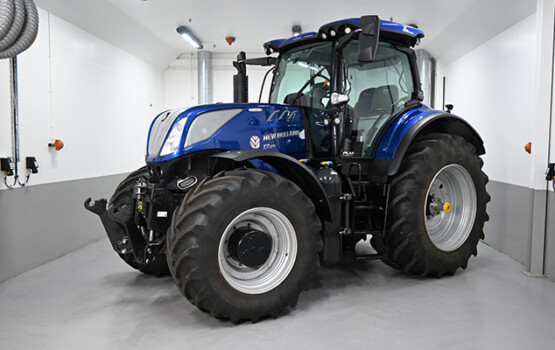Portal for more climate-friendly mobility
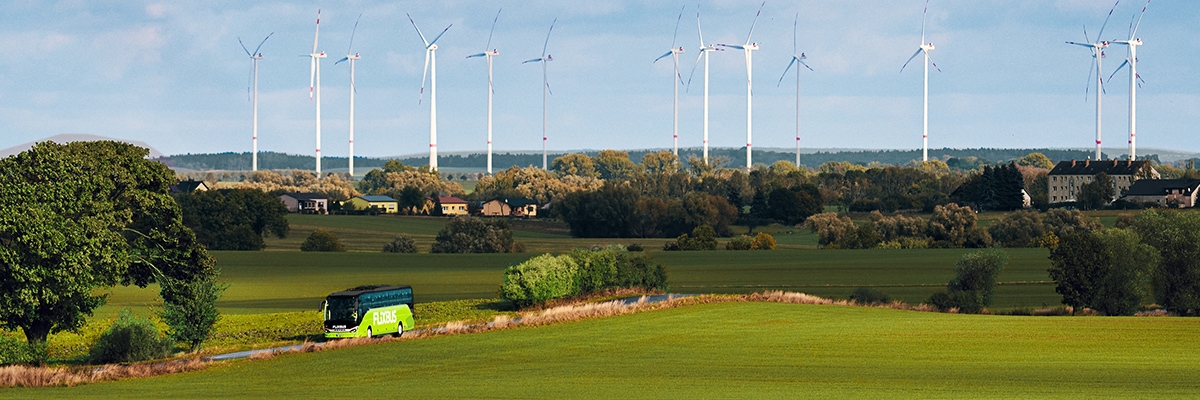
Travelling by bus with clear conscience
The bus and travel company Flix and the truck and bus manufacturer Scania are launching a long-term partnership to increase the use of biogas. By 2025, the two companies aim to have up to 50 LNG-powered buses with sustainable, liquefied LBG/bio-LNG in the tank on the road within the entire FlixBus network.
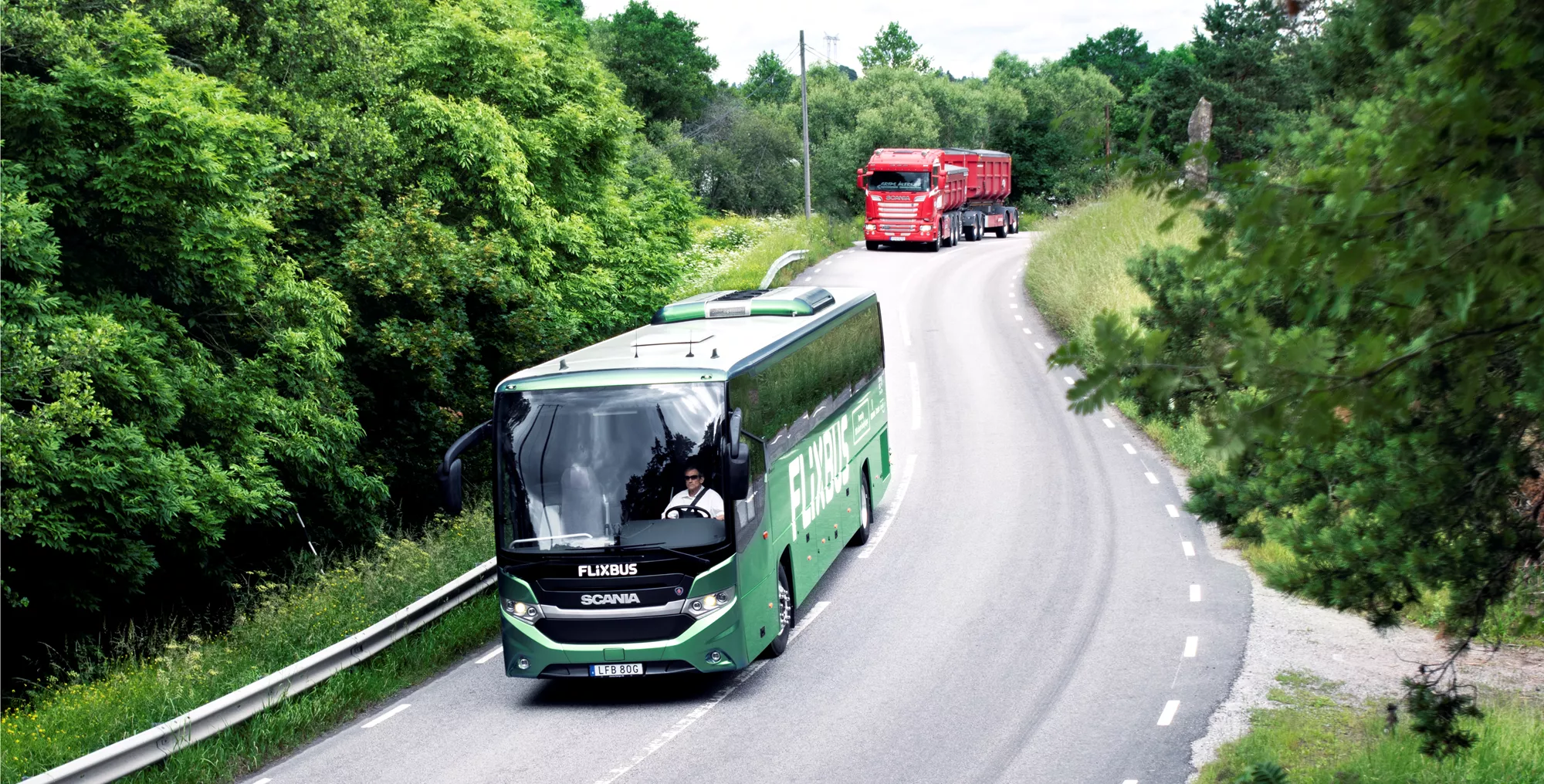
In Scandinavia, LNG buses from Scania are already successfully on the road for the travel company Flixbus, and now more are to be deployed on the Flixbus network. Source: Scania/Flix
To enable more sustainable long-distance travel, Swedish manufacturer Scania and global company Flix – known for its bright green Flixbuses – will work more closely together. Already in 2021, Flixbus relied on biogas as an alternative to fossil fuels to effectively reduce CO2 emissions. On two long-distance bus routes of Flixmobility between Amsterdam and Brussels as well as Oslo and Stockholm, biogas or bio-LNG/LBG was already used in the tank at that time.
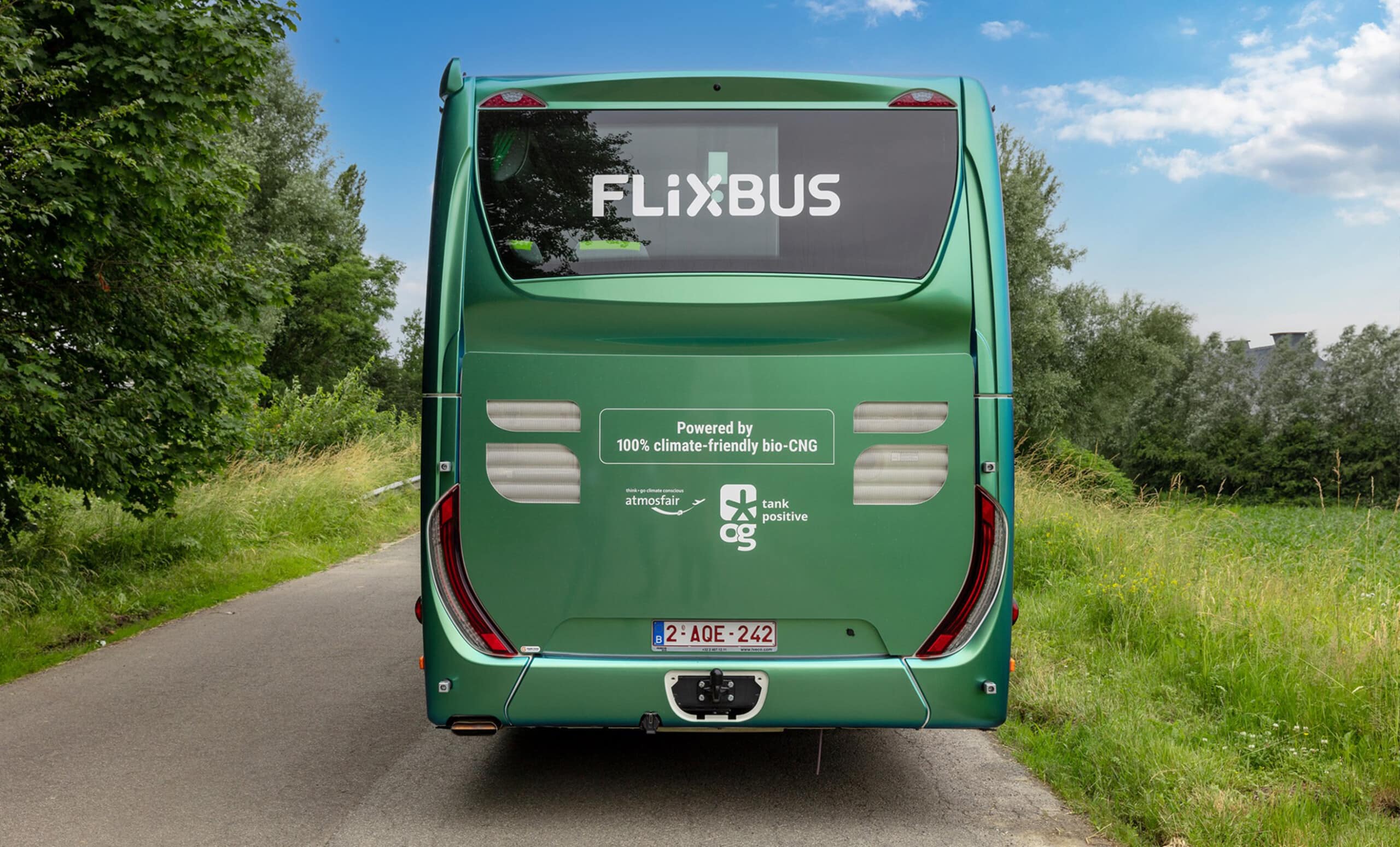 A biogas bus has been running between Amsterdam and Brussels since 2021, providing an almost CO2-neutral connection between the metropolises. Source: Iveco/Flix
A biogas bus has been running between Amsterdam and Brussels since 2021, providing an almost CO2-neutral connection between the metropolises. Source: Iveco/Flix
At the time, the Flixbus route between the two economic centres of the Netherlands and Belgium was served by an Iveco bus powered by CNG. This used 100 percent biogas from OrangeGas. In Scandinavia, on the other hand, a Scania was used to travel between Norway and Sweden with liquefied biogas (Bio-LNG/LBG). And the experience was apparently so positive that Flix and Scania are now entering into a long-term partnership. The first goal: up to 50 buses with LNG technology in the Flixbus network by 2025.

“We want to take a pioneering role in the conversion to sustainable transport. The cooperation with Flix is an important step,” explains Johanna Salomonsson Lind from Scania. “Biogas solutions are truly circular and can be implemented here and now. The LBG/LNG coaches are also a smart and sensible choice because they deliver the necessary range and power for any route, and at a low cost; both in terms of investment and operational economy.”
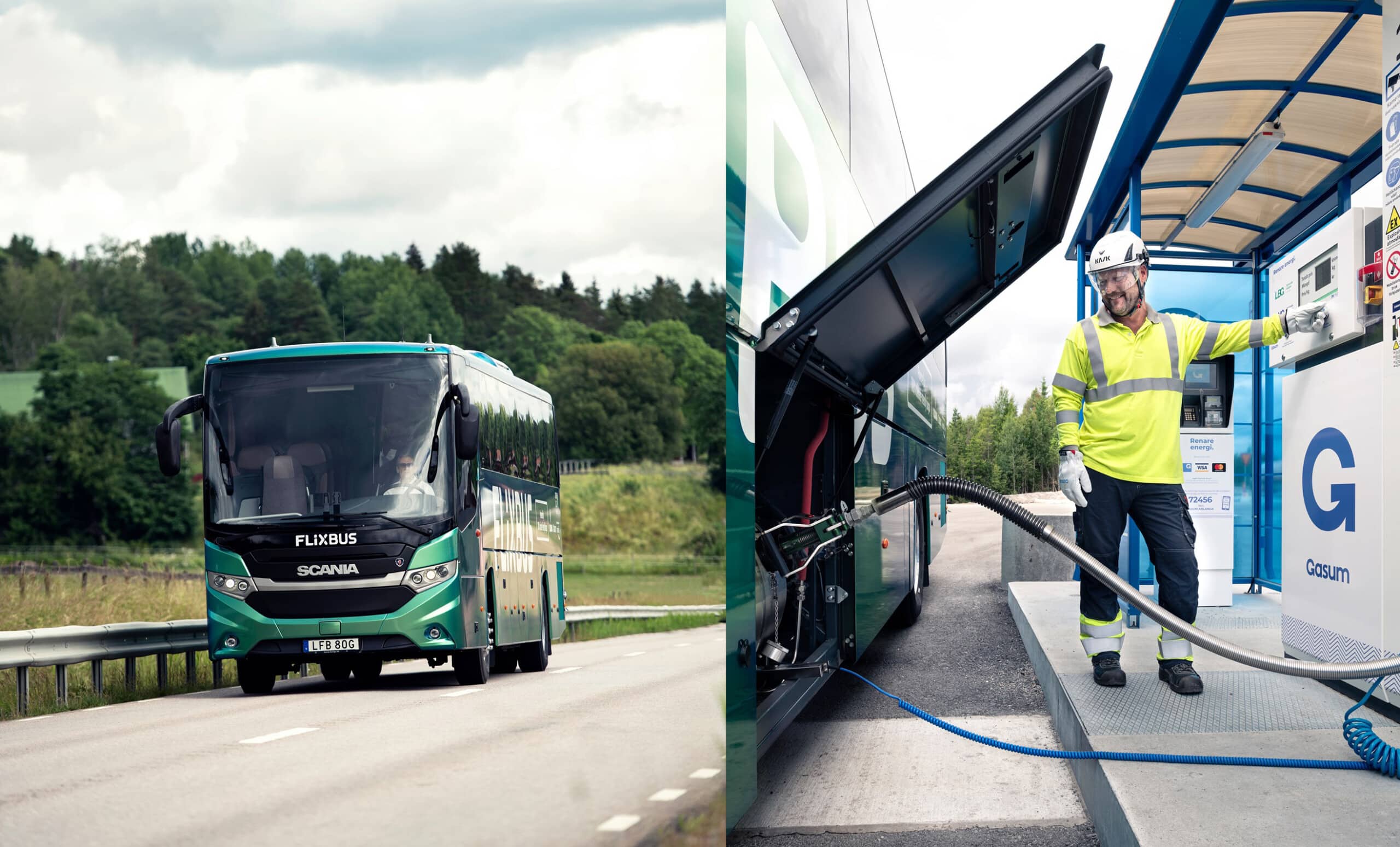 Thanks to the liquefied bio-LNG/LBG in the tank, the Scania buses have a clearly longer range. Source: Scania/Gasum
Thanks to the liquefied bio-LNG/LBG in the tank, the Scania buses have a clearly longer range. Source: Scania/Gasum
Scania’s previous experience with biogas buses has also already enabled the Swedish company to greatly reduce CO2 emissions compared to diesels and to reduce noise without having to sacrifice the power and torque of comparable diesel units. These advantages make biogas a viable and environmentally friendly option today for long-distance transport companies that want to make their service more sustainable and increase profitability.
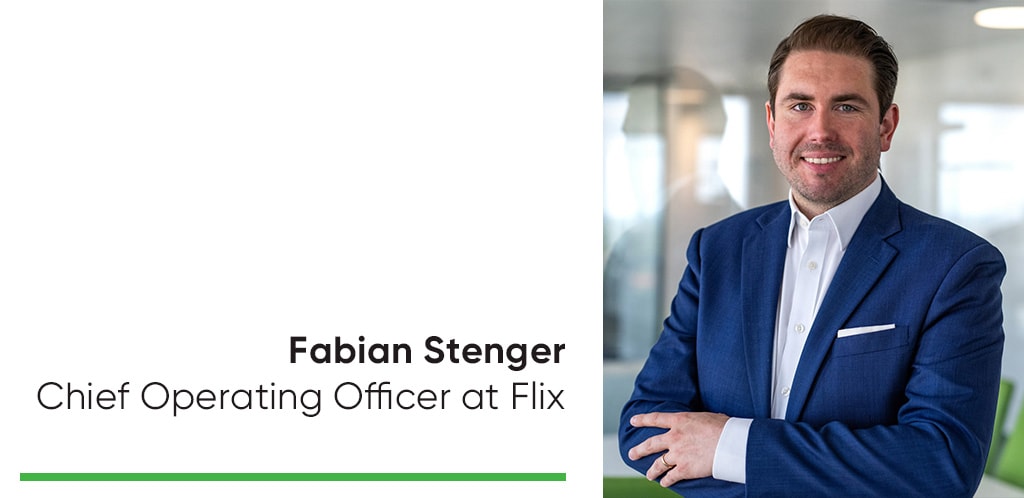
Fabian Stenger of Flix agrees: “Climate change is increasingly taking its toll on our planet and people. As a global travel tech company, we are aware of our responsibility to pave the way for a more sustainable future.” Commenting on the collaboration with Scania, he adds, “We are pleased to be able to rely on Scania’s long experience and expertise.”
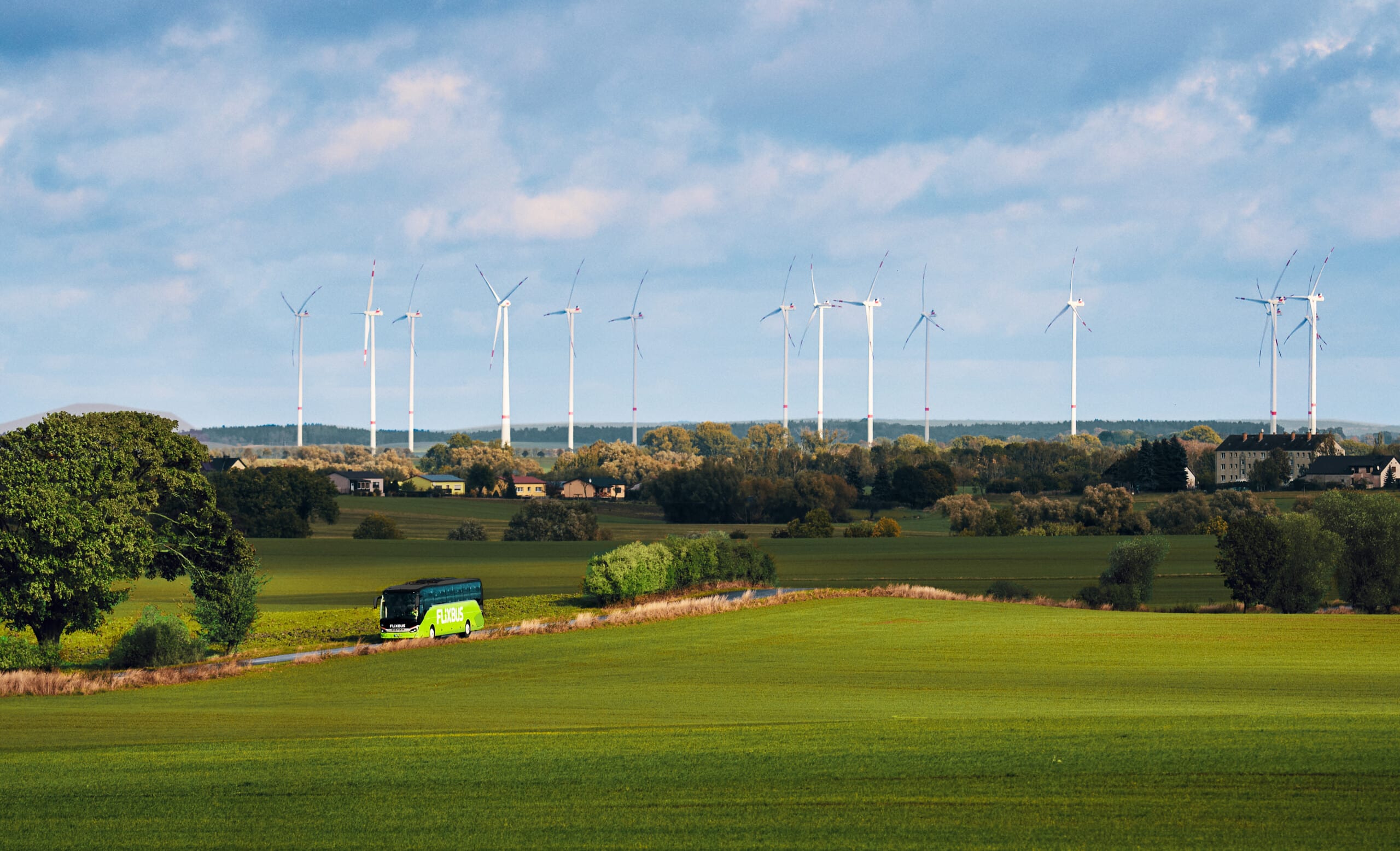 Green Flixbus with a drive system that is as “green” as possible in a green landscape: this is the goal of the partnership between Flix and Scania. Source: Flix
Green Flixbus with a drive system that is as “green” as possible in a green landscape: this is the goal of the partnership between Flix and Scania. Source: Flix
In the initial phase of the project, the LNG buses will still run on different fuel blends of biological and fossil origin. This is because the European filling station network for bio-LNG/LBG is not yet comprehensive, despite the steady expansion of biogas liquefaction capacities. The goal of the Flix-Scania project is to gradually increase the share of bio-LNG/LBG so that buses can travel as climate-neutrally as possible and reduce CO2 emissions kilometre by kilometre. (jas, 12 October 2023)
You might also be interested in
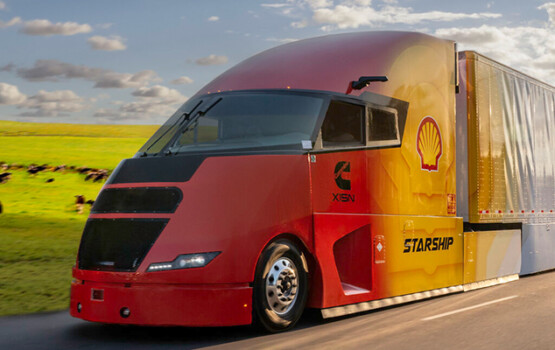
Shell Starship on record hunt
